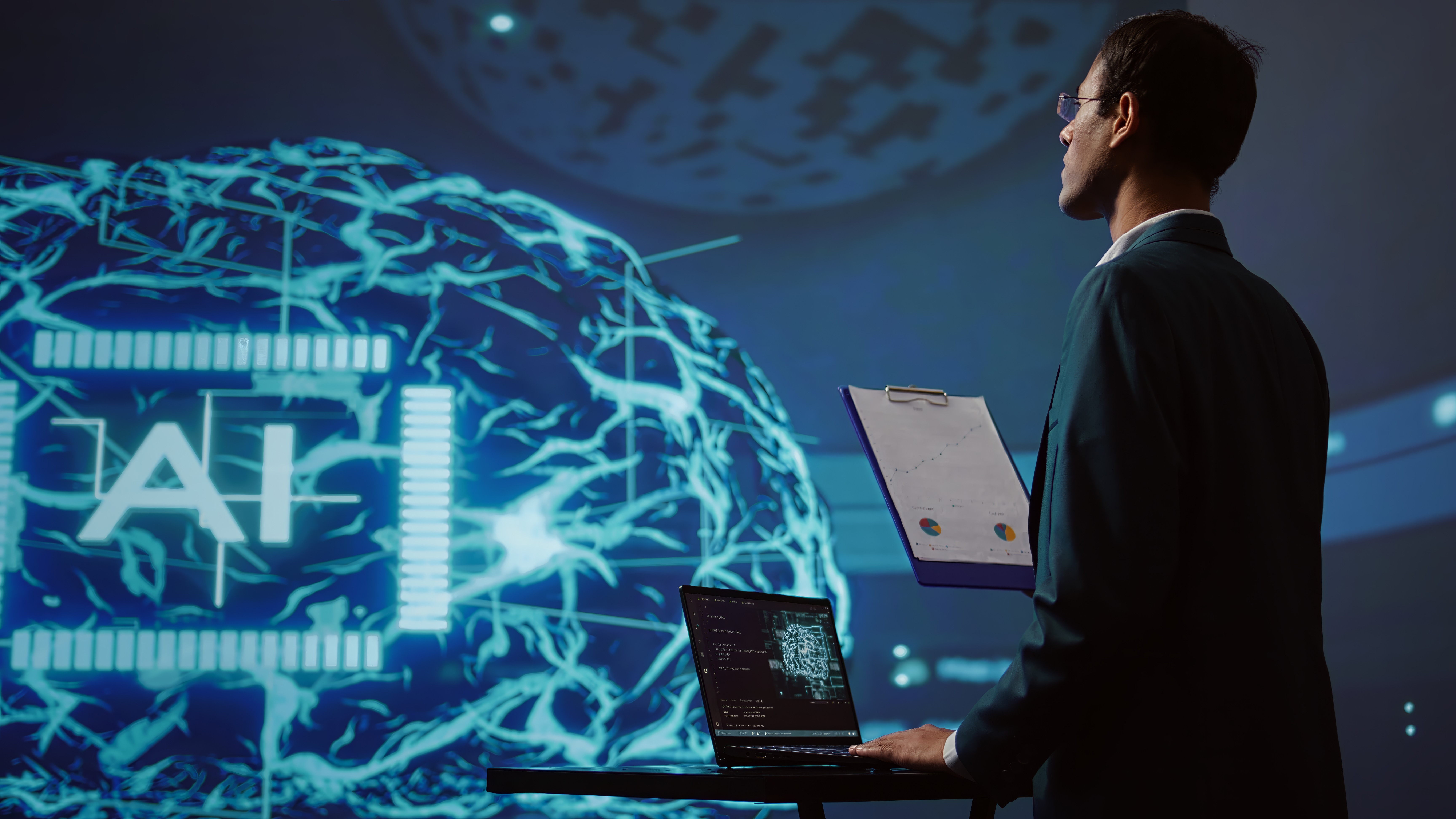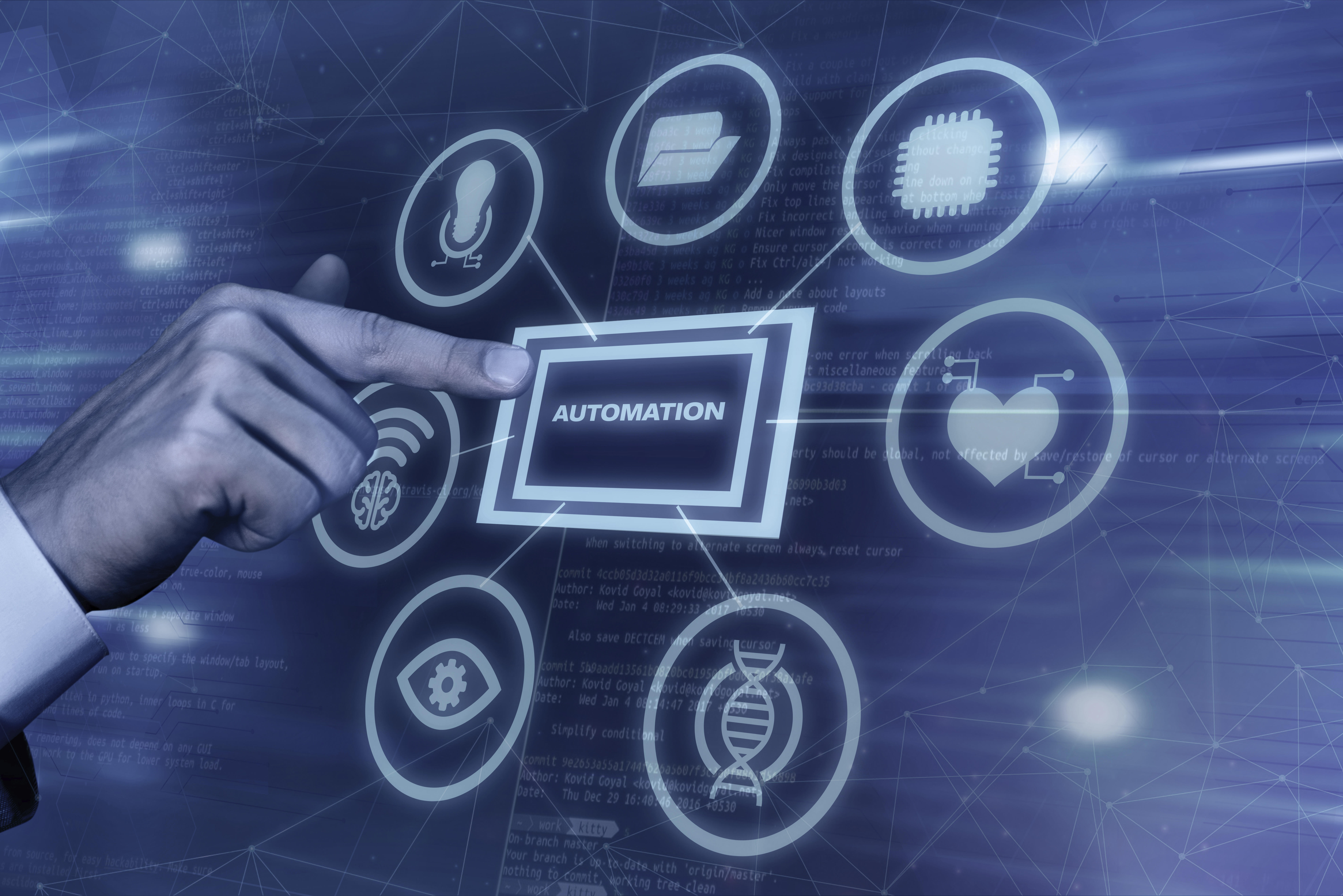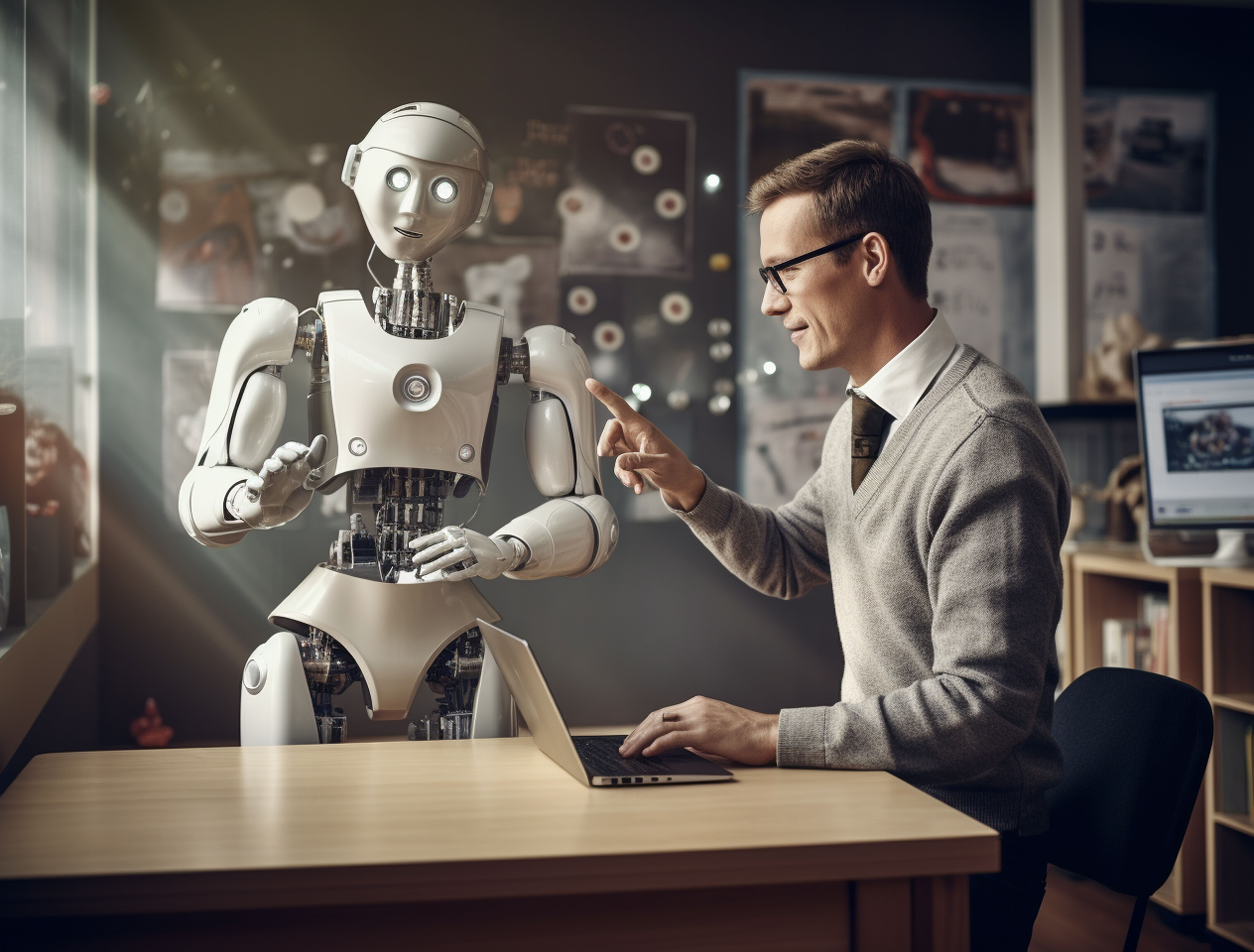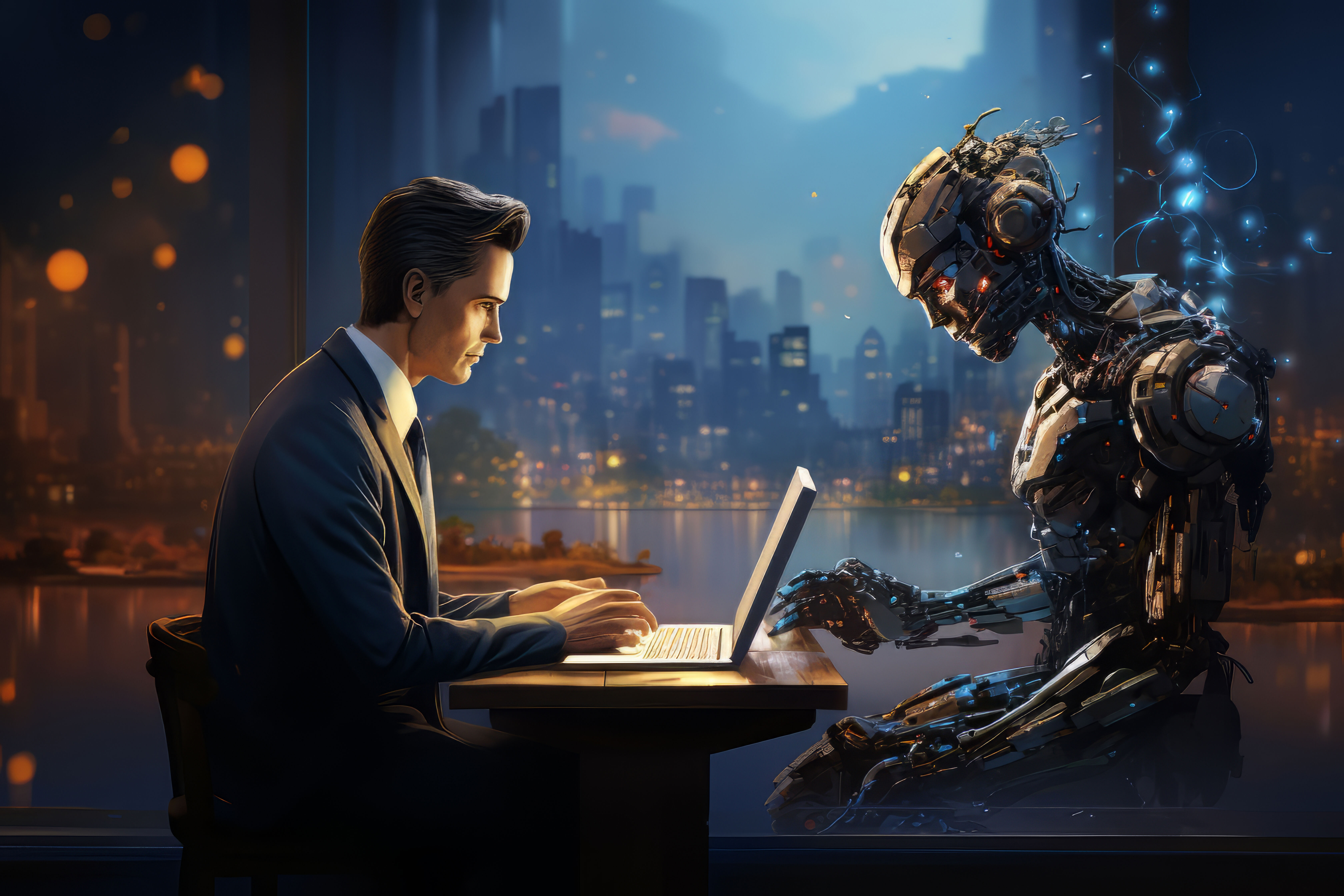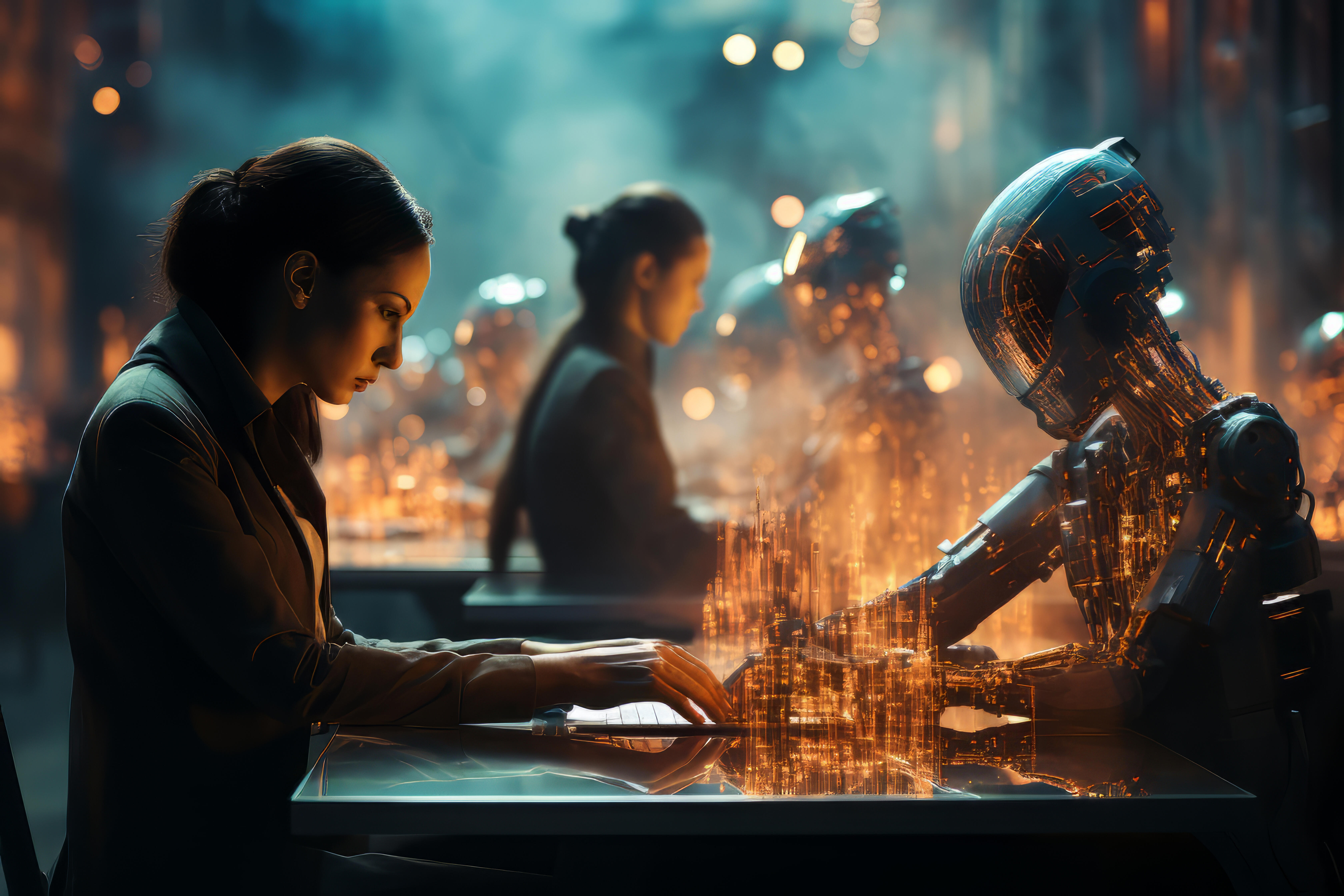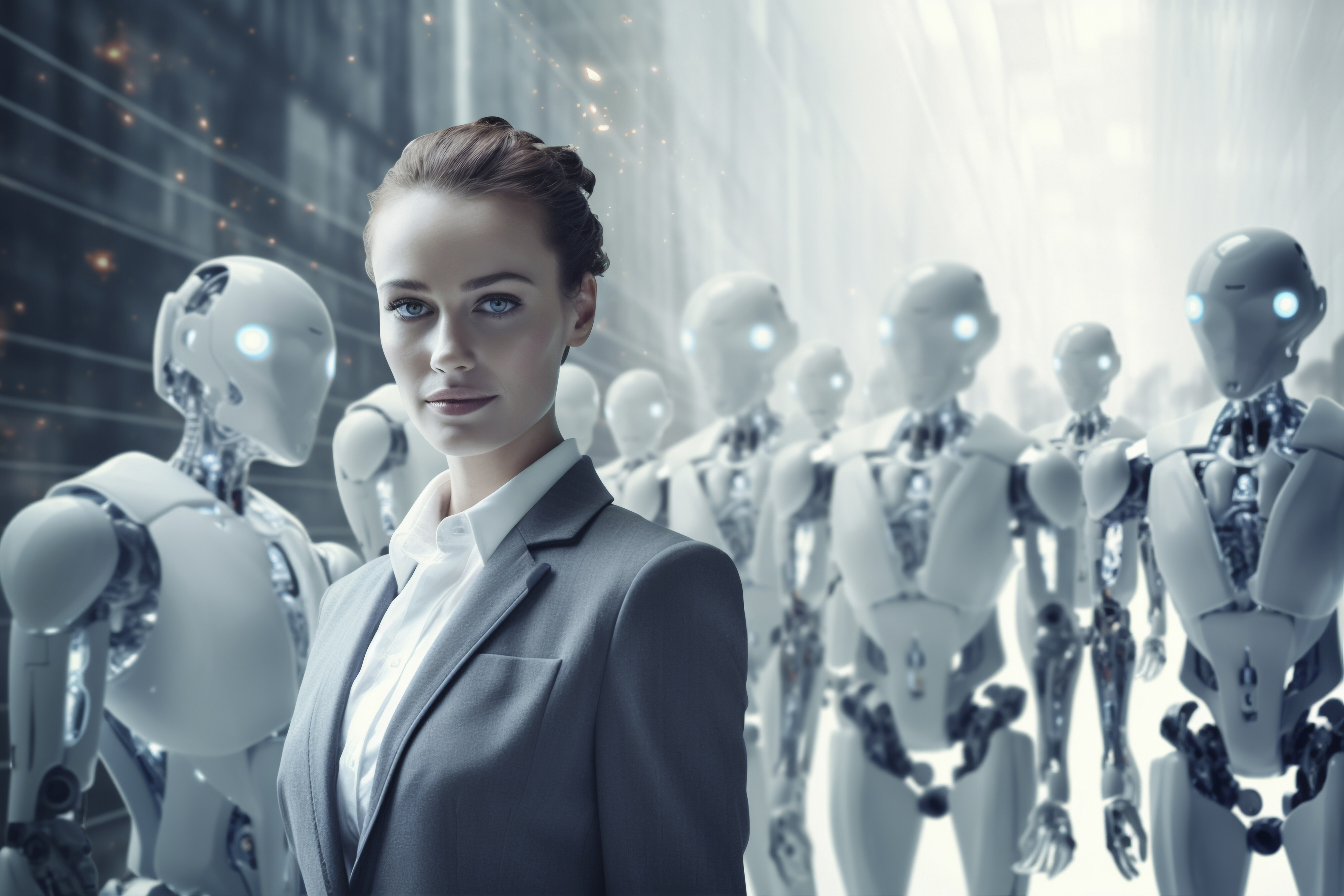What About AI in 2025? Trends You Can’t Ignore
What about AI in 2025?
Artificial Intelligence (AI) is no longer a futuristic concept—it’s a present-day reality shaping how we work, live, and connect. As we move through 2025, the question many are asking is: what about AI, and why should we care now more than ever?
Why is AI More Relevant than Ever?
AI has become an integral part of daily life, driving innovations across industries like healthcare, education, finance, marketing, and more. In 2025, AI tools are not only smarter but also more accessible. From chatbots that streamline customer service to predictive analytics that help businesses make data-driven decisions, AI’s presence is expanding rapidly. Global challenges—like healthcare efficiency, remote education, and climate change—are also being tackled using AI-powered solutions.
What this Guide Will Cover
This beginner-friendly guide breaks down the essentials of AI in 2025. You'll explore:
- The fundamentals of AI and how it works
- Real-world applications across various sectors
- Common tools and platforms used today
- Ethical considerations and future trends
Each section is designed to be clear, concise, and easy to follow—even if you’ve never encountered AI before.
How this Guide Helps Absolute Beginners
New to the topic and wondering, what about AI for someone with no tech background don’t worry—this guide is tailored just for you. We strip away the jargon and focus on practical knowledge. Whether you're a student, professional, or curious learner, this resource helps you build a solid foundation in AI, empowering you to join the conversation and understand the impact of this technology in 2025.
By the end, you’ll not only know what AI is but also why it matters—and how you can begin exploring it today.
What is Artificial Technology?
In today’s fast-paced digital world, the phrase “artificial technology” is becoming increasingly common—but what does it actually mean? If you're asking what is artificial technology? You’re not alone. Let’s break it down in simple terms.
Breaking Down the Term "Artificial Technology"
At its core, artificial technology refers to human-made systems and processes that mimic or replicate tasks typically associated with natural intelligence or natural processes. Unlike naturally occurring phenomena, artificial technologies are created intentionally using scientific knowledge, algorithms, and engineering. This includes tools, machines, and software designed to carry out functions ranging from simple automation to complex decision-making.
Examples include artificial intelligence (AI), machine learning algorithms, and even robotics—all of which fall under the umbrella of artificial technology.
Difference between Artificial Technology and Natural Technology
Natural technology is based on biological or environmental systems—things developed by or adapted from nature. For instance, beehive structures influencing architecture or plants inspiring solar panels.
In contrast, artificial technology is entirely man-made. It’s developed through coding, engineering, and design to perform specific functions, often mimicking human capabilities. The key difference lies in origin—natural technologies arise from nature, while artificial technologies are products of human ingenuity.
Everyday Examples You Already Use
You might not realize it, but artificial technology is part of your everyday life. Voice assistants like Siri or Alexa, recommendation systems on Netflix or YouTube, and navigation apps like Google Maps all use artificial intelligence to serve you better.
So next time you wonder what is artificial technology, just look at your phone, smart home device, or even your social media feed—chances are, you're already surrounded by it!
Understanding What Artificial Intelligence is?
In a world filled with smart devices and automated systems, many people are beginning to ask what artificial intelligence is and how it actually works. If you’re new to the topic, don’t worry—here’s a beginner-friendly breakdown.
Simple Definition of AI for Beginners
Artificial Intelligence (AI) is the field of computer science that focuses on creating machines capable of performing tasks that usually require human intelligence. These tasks include things like learning from data, recognizing speech or images, understanding language, and making decisions. In simple terms, AI helps machines "think" or "learn" in a way that mimics human behaviour.
AI vs. Traditional Computer Programs
Traditional computer programs follow a fixed set of rules. If “A” happens, the system does “B.” There’s no learning involved. AI, on the other hand, adapts and improves over time. For instance, an AI-powered email filter can learn to recognize spam by analysing patterns, even if it’s never seen a specific spam message before. That’s a key part of what artificial intelligence is—its ability to evolve with data.
Types of AI: Narrow, General, and Superintelligence
- Narrow AI is designed to perform a specific task—like a voice assistant or a recommendation engine.
- General AI would be able to perform any intellectual task a human can do (still theoretical).
- Superintelligence goes beyond human intelligence and remains a future concept.
Real-Life Examples
You probably use AI every day without realizing it. Chatbots on websites, personalized recommendations on Netflix, or smart assistants like Siri and Alexa are all powered by AI. Even autocorrect on your phone is a simple form of artificial intelligence.
Understanding what AI can do today helps us prepare for where it’s going tomorrow.
What about AI in Daily Life?
AI might sound like something from a sci-fi movie, but it's already a big part of our everyday lives. If you're wondering what about AI and how it affects you personally, the answer is—it’s closer than you think.
How is AI Already Around Us?
Artificial Intelligence is quietly powering many of the services and tools we use every day. From unlocking your phone with facial recognition to getting directions on your GPS, AI is working behind the scenes. It's not just in labs or tech companies—it’s in your pocket, your home, and even your workplace.
AI in Phones, Healthcare, Education, and Entertainment
- Phones: Virtual assistants like Siri or Google Assistant, camera enhancements, and spam filters use AI.
- Healthcare: AI helps doctors with early diagnosis, predicts patient needs, and assists in robotic surgeries.
- Education: Personalized learning apps adapt to students' needs, helping them learn at their own pace.
- Entertainment: Streaming platforms like Netflix and Spotify suggest content based on your preferences using AI algorithms.
In all these areas, AI enhances convenience, efficiency, and personalization.
Stories of How AI Is Helping People Worldwide
Across the globe, AI is making real impact:
- In rural areas, AI tools help diagnose diseases where doctors are scarce.
- In classrooms, AI tutors are helping students with special needs learn more effectively.
- In disaster zones, AI is used to predict floods or deliver aid faster using data and drones.
So, what about AI for ordinary people? It’s not just about futuristic gadgets—it’s about improving lives in practical, meaningful ways every day.
What Impact Does AI have on Jobs?
As AI continues to evolve, one of the biggest questions people ask is: what about AI and the future of jobs? Will it replace workers, or will it open new doors? Let’s explore how AI is reshaping the world of work.
Will AI Take Away Jobs or Create New Ones?
It’s true—AI is automating some routine tasks, especially in areas like manufacturing, data entry, and customer service. However, it’s also creating new opportunities. Just like previous technological revolutions, AI is shifting job roles rather than simply eliminating them.
Instead of doing repetitive work, employees will manage, supervise, and work alongside AI systems. For example, a factory worker might transition into a technician role maintaining robotic systems, or a customer support agent might use AI to respond faster and more accurately.
Top Careers in AI for the Future
As AI continues to grow, so does the demand for talent. Some of the fastest-growing careers include:
- AI and Machine Learning Engineers
- Data Scientists
- AI Ethics Specialists
- Natural Language Processing (NLP) Experts
- AI-Powered Automation Consultants
Beyond technical roles, industries like healthcare, education, law, and finance are also seeking professionals who understand how to integrate AI into their work.
Skills to Stay Relevant in the AI Era
To thrive in an AI-powered world, adaptability is key. Focus on:
- Critical thinking and problem-solving
- Data literacy and digital skills
- Basic understanding of AI concepts
- Creativity and emotional intelligence
So, when people ask, what about AI and your career? The answer lies in being proactive—embrace change, learn new skills, and position yourself to work with AI, not against it.
How to Start Learning AI from Scratch?
Interested in AI but don’t know where to begin? Whether you're a student, a professional from another field, or just curious, you don’t need to be a coding expert to start. Here’s how anyone can begin their journey into Artificial Intelligence—step by step.
No Coding Background? No Problem!
Many people believe you need a strong programming background to understand AI. While coding helps later on, it’s not a requirement at the start. Learning the concepts behind AI—like algorithms, data patterns, and decision-making logic—is more important at the beginning.
To get started, begin by understanding what is artificial technology and how it's used in daily life. This foundation helps you see the big picture before diving into technical details.
Free Tools and Beginner-Friendly Platforms
There are plenty of beginner-friendly platforms to explore:
- LAI (Learn AI) – A fantastic platform that breaks down complex AI topics into easy-to-understand lessons.
- Google's Teachable Machine – Create simple AI models without any code.
- Khan Academy, Coursera, and edX – Offer free introductory courses in AI and machine learning.
- YouTube Channels like Simplilearn or freeCodeCamp are great for visual learners.
These resources focus on the basics, making it easier to understand what is artificial technology and why it matters.
Suggested Learning Paths and Courses
Start with:
- Intro to AI concepts – Learn what AI is and how it works.
- Machine learning basics – Understand how AI systems learn from data.
- Try mini projects – Use AI tools to build a chatbot or image classifier.
Once you grasp the basics, you can explore more advanced topics and even learn to code using Python or TensorFlow.
What about AI and Ethics?
As AI becomes more integrated into daily life, the question arises: What About AI and the ethical decisions it must navigate? With great power comes great responsibility, and ethics are at the core of how AI should be developed and used.
Why Ethics Matter in AI
AI has the potential to make powerful decisions—who gets a loan, who is recommended for a job, even how medical treatment is prioritized. That’s why ethical considerations are not optional. We must ensure AI systems act fairly, transparently, and in the best interest of humanity. Ethical AI helps build trust, prevent harm, and promote equality.
Real-World Concerns: Bias, Privacy, Accountability
- Bias: If AI systems are trained on biased data, they can reinforce and even amplify discrimination in hiring, policing, and lending.
- Privacy: AI can analyse vast amounts of personal data, raising concerns about surveillance and consent.
- Accountability: Who is responsible when an AI system makes a mistake—like a self-driving car causing an accident?
These are real challenges that highlight the importance of thoughtful AI design and regulation.
The Importance of Human-in-the-Loop Systems
To address these concerns, many experts recommend “human-in-the-loop” systems—where AI works alongside humans, not independently of them. This ensures that sensitive decisions are overseen by people who can apply judgment, empathy, and context.
So, What about AI when it comes to ethical responsibility? It’s not just about what AI can do—it’s about what it should do. Ethical guidelines, diverse data, and continuous human oversight will be key to ensuring AI benefits everyone, not just a few.
What is Artificial Intelligence Becoming in the Future?
As we move beyond 2025, it’s time to ask a big question: what artificial intelligence is becoming in the years ahead. Will it match our greatest hopes—or fall into the traps of overhype and unrealistic expectations?
The Road Ahead for AI Beyond 2025
AI is already transforming industries like healthcare, finance, education, and transportation. But the future holds even more potential. We’re seeing progress in autonomous systems, AI-generated content, and predictive models that can help solve complex global challenges like climate change and pandemics. AI won’t just be a tool—it will become a collaborative partner in decision-making and creativity.
Hopes vs. Hype: What’s Realistic?
There’s a lot of excitement, but it’s important to separate fact from fiction. While AI might not achieve human-like consciousness anytime soon, we will see smarter assistants, more advanced robotics, and AI systems capable of handling nuanced tasks like emotional recognition or language translation.
The key is to stay grounded. The goal isn’t to create machines that replace us, but ones that augment what we do—making work more efficient, decisions more data-driven, and services more personalized.
How Can You Be Part of Shaping AI’s Future?
Understanding what artificial intelligence is today helps you play a role in shaping what it becomes tomorrow. Whether you’re a student, a professional, or a curious learner, your voice matters. Learn the basics, get involved in conversations about ethics and design, and consider careers where you can influence AI for good.
The future of AI isn’t just about technology—it’s about people. It’s about all of us working together to build a future that’s inclusive, transparent, and responsible.
Conclusion: What about AI—Now It’s Your Turn
You've explored what about AI in various aspects of life, from its role in everyday tasks to its ethical considerations and future potential. You've also delved into what is artificial technology and how it's shaping industries across the globe. Now that you understand what artificial intelligence is, it's time to keep learning and diving deeper into the topic. AI is an ever-evolving field, and there’s always more to discover. To help you get started, check out the LAI beginner courses and resources. Continue your journey to explore what about AI and how it can shape your future.




